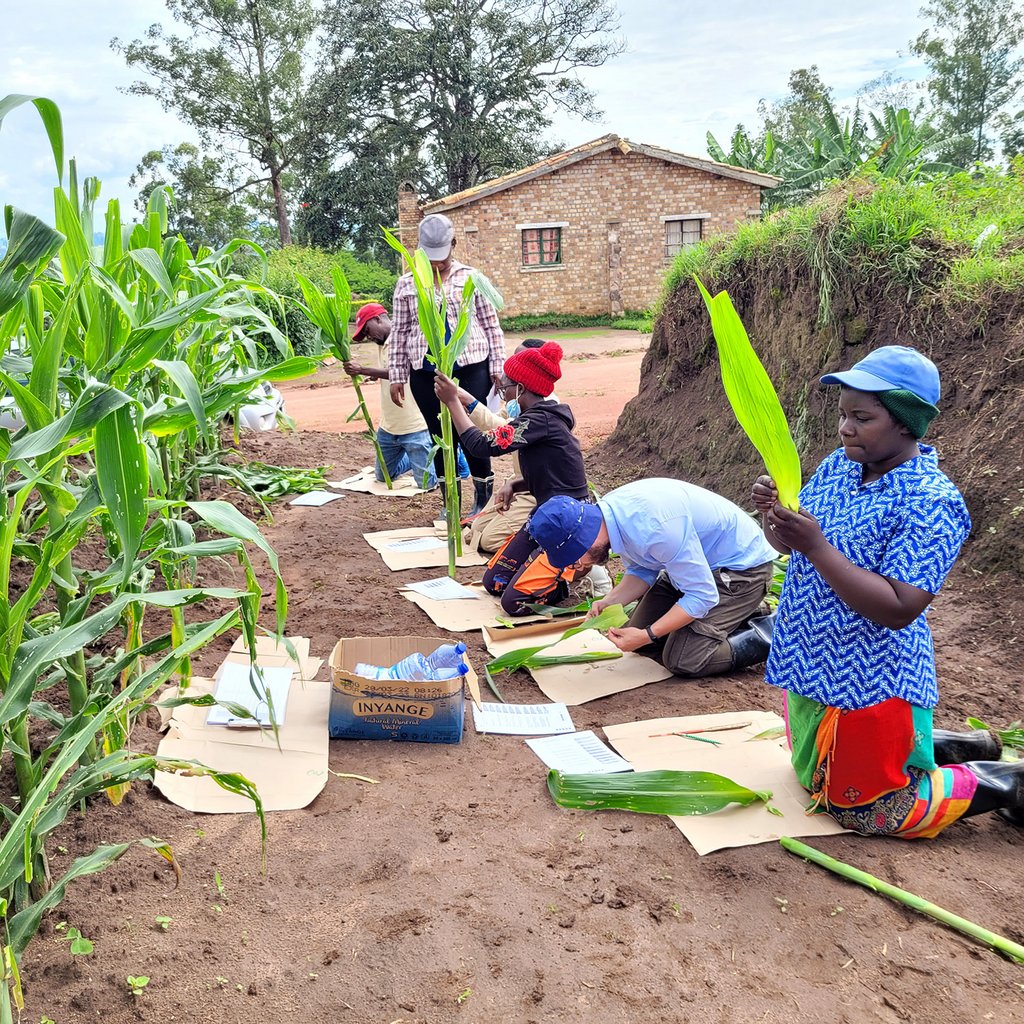Biocontrol solution for farmers against the fall armyworm
What do we see on the project photo?
On the left, we see maize plants damaged by the fall armyworm (FAW). On the right, the project team is evaluating FAW infestation. FAW is a devastating invasive pest of maize that is threatening the livelihood of millions of farmers as well as food security particularly in Africa and Asia.
How would you explain to a child what the project is doing?
To fight against FAW, farmers use large quantities of chemical insecticides, which can harm humans, animals and the environment. We test if we can apply tiny insect-killing worms as a safe, effective and sustainable alternative to control FAW instead of the harmful insecticides.
What is the project’s main objective?
Our objective is to use entomopathogenic nematodes (EPN) as biocontrol agents for FAW. EPN are tiny soil-dwelling worms lethal to insects. We developed a cost-effective formulation to easily apply EPN onto maize plants to control FAW, while posing no risk to humans and the environment.
Why is the project important?
FAW causes US$ billions worth of yield losses annually and has led to an important influx of chemical insecticides in Africa and Asia. Developing a safe and sustainable control option for FAW will protect the environment while securing food and income for farmers.
What has been the most positive moment during the project?
The most positive moment of the project was when we observed in realistic farming conditions in Rwanda that EPN, which are sensitive to UV radiation and desiccation, could very effectively kill FAW caterpillars on maize leaves when applied in a protective formulation.
What have been the biggest challenges encountered in the project?
As soil organisms, EPN are particularly sensitive to aboveground environmental constraints. The biggest challenge encountered was to develop a cheap formulation that protects the EPN against abiotic stresses, while also being practical to apply.
Which is the most important lesson learnt from the project?
The project demonstrates that the sensitive EPN are not only highly effective against soil pests, but also against foliar insects if applied appropriately. Hence, effective and safe solutions can also be developed when conditions are unfavorable to these biocontrol agents.
About the project
Title:
A novel nematode-based biocontrol solution for farmers against the fall armyworm
Contact:
Patrick Fallet, PhD student
Duration:
2018-2022
Funding institutions:
CABI’s Action on Invasives programme and Plantwise Plus; European Research Council advanced grant 788949
Implementing institution:
University of Neuchâtel; CABI; Rwanda Agriculture and Animal Resources Development Board
Links to further information:
Patrick Fallet's page at University of Neuchâtel
CABI News article (27 April 2020)
CABI News article (25 April 2018)
See also:
Winners of SFIAR Award 2022l

